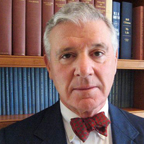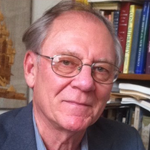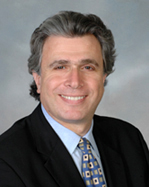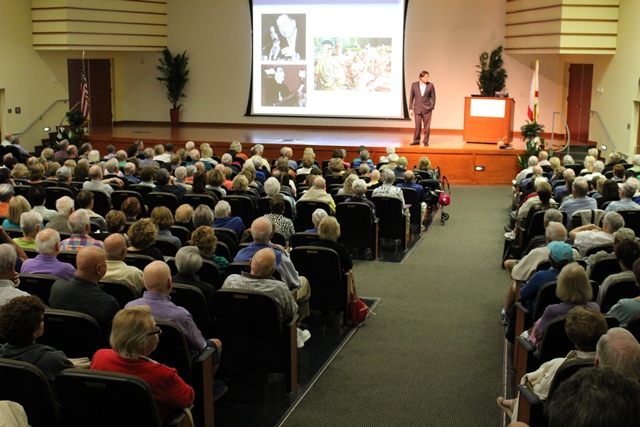
A few brief musings for our singularly experienced and wise LLS constituents on the increasing appearance of connectivity as amongst rapid sociological changes in our American culture, federal and state legislators giving approbation to them, and with ongoing appellate court decisions now recognizing the evolving “will of the people” in construing developing societal mores.
In this context, observers are now witnessing judicial Constitutional approbation being given to dynamic changes in laws approved by both state legislatures, as well as Congressional fiat.
Over the decades, familiar Constitutional claims of freedom of religion, privacy, equal opportunity, and due process, (among others), have often been sustained by the courts to maintain comfortable historical Constitutional status quo in hotly contested clashes between people of good will holding strong and intractable antithetical positions upon a given subject.
However, times may be rapidly changing. A few illustrative recent examples for all to consider:
Physician-Assisted Suicide…still illegal in most states, but with a growing recognition that an aging American population may now be required to recognize carefully regulated and protected affirmative rights of its citizens to decide to end their lives. Five states now permit so doing, with likely more to swiftly follow.
Smoking …an almost total rejection of previously unrestrained smoking in all public and many private venues in a matter of a few decades has reversed almost unanimous older appellate court decisions protecting the Constitutional rights of individuals and business to permit and foster such conduct.
Vaccinations…Historically, parents not wishing to submit their children to such protocols had three Constitutionally grounded defenses against so doing: medical, religious, and philosophical. Developing state laws are limiting parental discretion.
The Death Penalty…At this moment, the Supreme Court is hearing six cases where the death penalty may possibly be prohibited as “cruel and unusual punishment.”
Same-Sex Marriage…who would have “thunk it” as being Constitutionally protected, even a few years ago?
We all are privileged to be witnessing a fascinating, fast-moving [legal] canter…where the jockey may well be the “unbridled” voice of the people, with both the judiciary and Constitution but the horse “along for the ride.”
 Irving Labovitz, J.D., is a graduate of the University of Massachusetts and holds a Juris Doctor from Boston University School of Law. Currently, he is teaching an eight-week course, “Current and Contentious Legal Battles,” at FAU LLS in Jupiter on Wednesdays at 2:15 p.m. He is admitted before the U.S. Supreme Court, as well as multiple federal appellate and trial courts. His experience includes: Federal Trade Commission legal staff in Washington, D.C., military federal prosecutor, Adjunct Professor of Business Law at Western New England Law School and FAU, attorney for major banks in concentrations of bankruptcy and secured lending, and contract counsel for the Federal Deposit Insurance Corporation in the liquidation of failed banks. He has authored many scholarly law review articles and has been a national lecturer for the American Bar Association and Commercial Law League of America. Most recently, he was general counsel for a large corporation.
Irving Labovitz, J.D., is a graduate of the University of Massachusetts and holds a Juris Doctor from Boston University School of Law. Currently, he is teaching an eight-week course, “Current and Contentious Legal Battles,” at FAU LLS in Jupiter on Wednesdays at 2:15 p.m. He is admitted before the U.S. Supreme Court, as well as multiple federal appellate and trial courts. His experience includes: Federal Trade Commission legal staff in Washington, D.C., military federal prosecutor, Adjunct Professor of Business Law at Western New England Law School and FAU, attorney for major banks in concentrations of bankruptcy and secured lending, and contract counsel for the Federal Deposit Insurance Corporation in the liquidation of failed banks. He has authored many scholarly law review articles and has been a national lecturer for the American Bar Association and Commercial Law League of America. Most recently, he was general counsel for a large corporation.



 r. Paul Mojzes is Professor Emeritus of religious studies at Rosemont College, Rosemont, Pennsylvania, where he used to be the Provost and Academic Dean. Currently, he is teaching a six-week course, “Religious Violence and Peacemaking,” at FAU LLS Jupiter on Thursdays at 2:30 p.m. He also taught in the Holocaust and Genocide Masters program at Stockton College in New Jersey. He is a native of Yugoslavia who studied at Belgrade University Law School, received the A.B. degree from Florida Southern College and a Ph.D. degree from Boston University in Eastern European church history. He is the co-editor of the Journal of Ecumenical Studies, and founder and editor of Occasional Papers on Religion in Eastern Europe. Author of six and the editor of fourteen books, he has written over 100 articles and chapters in books. Among his recent books are “Balkan Genocides: Holocaust and Ethnic Cleansing in the Twentieth Century,” “Yugoslavian Inferno: Ethnoreligious Warfare in the Balkans,” “Religious Liberty in Eastern Europe and the USSR,” and edited “Religion and War in Bosnia” and co-edited “Interreligious Dialogue Toward Reconciliation in Macedonia and Bosnia.” He lectured in numerous countries and participated in a great variety of interreligious dialogues and Holocaust and genocide conferences.
r. Paul Mojzes is Professor Emeritus of religious studies at Rosemont College, Rosemont, Pennsylvania, where he used to be the Provost and Academic Dean. Currently, he is teaching a six-week course, “Religious Violence and Peacemaking,” at FAU LLS Jupiter on Thursdays at 2:30 p.m. He also taught in the Holocaust and Genocide Masters program at Stockton College in New Jersey. He is a native of Yugoslavia who studied at Belgrade University Law School, received the A.B. degree from Florida Southern College and a Ph.D. degree from Boston University in Eastern European church history. He is the co-editor of the Journal of Ecumenical Studies, and founder and editor of Occasional Papers on Religion in Eastern Europe. Author of six and the editor of fourteen books, he has written over 100 articles and chapters in books. Among his recent books are “Balkan Genocides: Holocaust and Ethnic Cleansing in the Twentieth Century,” “Yugoslavian Inferno: Ethnoreligious Warfare in the Balkans,” “Religious Liberty in Eastern Europe and the USSR,” and edited “Religion and War in Bosnia” and co-edited “Interreligious Dialogue Toward Reconciliation in Macedonia and Bosnia.” He lectured in numerous countries and participated in a great variety of interreligious dialogues and Holocaust and genocide conferences.








